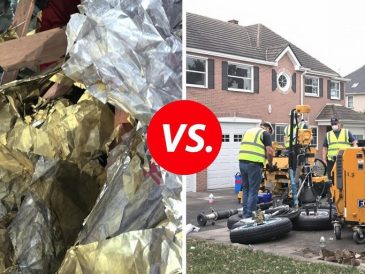Squatters’ rights often make headlines, and Maryland is no exception. While the term might spark debate, few realize that maryland squatters rights unlock surprising advantages for occupants determined enough to claim and maintain control over an unused property. Exploring these rights reveals not only legal routes to property ownership but also the social and economic trends that make adverse possession a subject of growing interest.
Are you curious about how Maryland’s squatters’ rights can transform long-term occupation into legal property claims? This blog spotlights the potential benefits and the mechanisms guiding these often-misunderstood laws.
Understanding Squatters’ Rights in Maryland
Squatters’ rights hinge on the principle of adverse possession. When someone occupies land or property without the owner’s explicit permission, they may, under specific circumstances, gain legal rights after a certain period. Maryland law sets clear requirements for a squatter to transition from unlawful occupant to potential property owner.
The Foundation of Adverse Possession
Adverse possession refers to the process where an individual who resides in a property for a statutory period gains the right to petition for legal ownership. The intent is not to reward trespassers but to promote active and beneficial use of land that would otherwise remain vacant or neglected. Maryland mandates a continuous, open, and exclusive occupation for 20 years. During this time, the individual pays property taxes and maintains the property as if it is their own.
Transparency and Hostility
Maryland’s statutes require that the occupation be both “open and notorious” as well as “hostile.” Openness ensures the occupation is visible and obvious, putting any rightful owner or interested party on notice. Hostility does not imply aggression, but rather means the occupation happens without the explicit agreement of the property owner.
Societal and Economic Benefits of Squatters’ Rights
Examining Maryland squatters’ rights through a contemporary lens shows that they serve more than one purpose. Beyond opening a path to property claims, these laws reflect broader trends and deliver key benefits to individuals and communities alike.
1. Revitalization of Vacant Properties
Many parts of Maryland grapple with abandoned properties that drag down neighborhood value and invite criminal activity or blight. Squatters, often seeking stability, bring vacant buildings back to life. Through occupancy, maintenance, and improvements, these residents can enhance curb appeal and restore the character of older neighborhoods.
2. Encouraging Productive Land Use
Adverse possession laws discourage waste by pushing unused land into active contribution. Whether cultivated into urban gardens or remodeled into safe residences, these properties start generating social and economic value again.
3. Pathway to Homeownership
For individuals facing economic uncertainty or barriers to traditional home buying, squatters’ rights offer a unique and lawful route to homeownership. By meeting Maryland’s legal thresholds, persistent occupants can secure housing stability and start building personal wealth.
4. Contributions to Local Tax Base
One requirement for adverse possession in Maryland is that the occupant pays property taxes during their tenure. This direct financial contribution supports community infrastructure and public services, even before legal title changes hands.
5. Reduced Crime and Increased Safety
Occupied homes are statistically less likely to become havens for illegal activity. By bringing abandoned properties into regular use, squatters contribute to safer, more vibrant neighborhoods.


